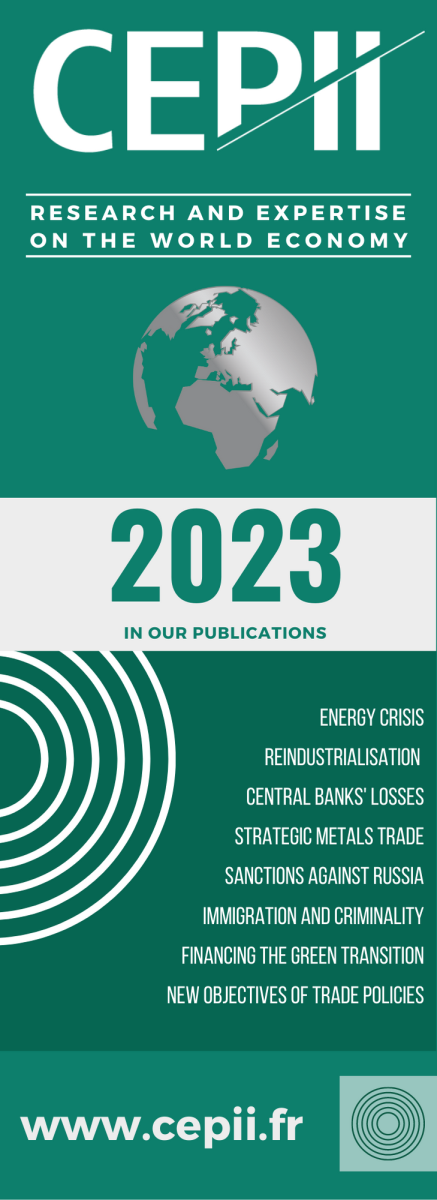The latest edition of the IMF's World Economic Outlook provides an update for the short and long term. Short-term growth prospects are still hampered by the continued burden of high inflation and the consequences of the invasion of Ukraine triggering wider geopolitical tensions and supply-chain disruptions. More recently, questions have emerged - at least in some countries - about financial stability. Growth may also be affected by the increasing fragmentation of the global economy. The IMF studies in depth the consequences of the growing concentration of foreign direct investment along geopolitical lines, which could affect more directly emerging and developing economies. Discussion with Mehdi Benatiya Andaloussi and Andrea F. Presbitero, economists at the IMF and co-authors of the World Economic Outlook 2023, Jérôme Héricourt, Scientific Advisor, Macroeconomics and International Finance Program, CEPII, and Antoine Bouët, Director, CEPII.
>>> |
- Populism and the Skill-Content of Globalization: Evidence from the Last 60 Years
Frédéric Docquier, Lucas Guichard, Stefano Iandolo, Hillel Rapoport & Riccardo Turati & Gonzague Vannoorenberghe - Fire Sales and Bank Runs in the Presence of a Saving Allocation by Depositors
Axelle Arquié - Retaliation through Temporary Trade Barriers
Davide Furceri, Jonathan Ostry, Chris Papageorgiou, Pauline Wibaux - Visa Policy and International Student Migration: Evidence from the Student Partners Program in Canada
Jérôme Gonnot, Mauro Lanati - The Unintended Consequences of High Regional Content Requirements
Keith Head, Thierry Mayer, Marc Melitz - Automation, Global Value Chains and Functional Specialization
Lionel Fontagné, Ariell Reshef, Gianluca Santoni, Giulio Vannelli
- World Bank Economic Review
The Economic Impact of Deepening Trade Agreements
Lionel Fontagné, Nadia Rocha, Michele Ruta, Gianluca Santoni - Energy Policy
An ex-ante evaluation of the French car feebate
Louise Kessler, Florian Morvillier, Quentin Perrier, Keyvan Rucheton
IMF WEO 2023: short-term and longer term outlook for the global economy in an increasingly fragmented world
Video Podcast
IMF's Regional Economic Outlook for Europe. Taming inflation without a recession: Europe’s growth and inflation outlook and its policy implications
May 15, 2023
Junior Workshop on The Economics of Migration
June 15 - 16, 2023
The CEPII Scientific Committee
July 11, 2023
The CEPII Seminar "Trade Policies"
July 10 - 11, 2023
| The Unintended Consequences of High Regional Content Requirements Rules of origin are a common feature of regional trade agreements that fall short of full custom unions. Two of the most important trade agreements, the North American Free Trade Agreement (NAFTA) and the European Union (EU), recently enacted major changes to those rules. The 2020 USMCA agreement replacing NAFTA made those rules much stricter. Meanwhile, following its exit from the EU customs union, Britain and the remaining EU27 had to draw up new rules of origin for the EU-UK Trade and Cooperation Agreement (TCA). This paper quantifies the main trade-offs involved in setting the strictness of rules of origin in the context of the automobile industry. A more stringent agreement can raise or lower regional parts production, but it inevitably raises prices. By Keith Head, Thierry Mayer and Marc Melitz
>>> |
- Contact us
- Our other sites
 |
ISSN: 1255-7072
Editorial Director : Antoine BouëtManaging Editor : Evgenia Korotkova











